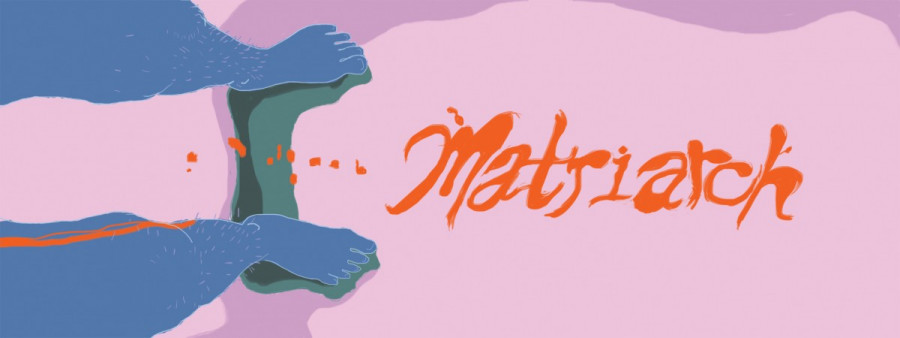Matriarch: A Call for Greater Understanding
The Importance of Consent Education as a Measure Against Rape Culture
Anna walked out of the Centre for Victims of Sexual Aggression into the crisp January air feeling doubly traumatized.
The Concordia student had recently escaped an abusive relationship, and while she thought reporting the rape at the hands of her former partner would bring closure, it did the exact opposite.
“They make you feel like an object,” Anna, whose name has been changed to keep her anonymity, said of the police who took her testimony. “I felt like a science project.”
Anna, who isn’t white, felt ill at ease speaking to the two white, male police officers who were visibly skeptical as they listened to her account. Only when she broke down and cried while describing how her former partner would penetrate her without her consent while emotionally abusing her did their attitude of disbelief turn to empathy.
“I felt really weird, and started to get dizzy,” she said. She had gone to the Centre pour les victimes d’agression sexuelle de Montréal a month earlier to get forensic evidence of her assault. However, although her then-partner ejaculated inside of her without her consent, she was menstruating, and getting DNA evidence of the assault proved impossible.
She wasn’t ready to press legal charges at the time, so the centre held onto the rape kit—something normally destroyed after three weeks if it isn’t used in a criminal process—until she was ready to do so.
Part of her motivation to go to the police was so that the intense experience of subjecting herself to post-trauma clinical inspection didn’t go to waste.
However, the steps taken to expose her rapist hurt the process of emotional recuperation more than it healed. Reliving the trauma she’d been through left her emotionally vulnerable and reinforced all the feelings of self-disgust the abusive relationship had fostered. As soon as she got home after giving the police her confession, Anna locked herself in her room and cried.
“I felt violated. I felt sick. Having to go through that process, having to convince people that my experience actually happened,” she said, was the opposite of the empowering process she had hoped for in exposing her assailant.
Worse, the experience was nothing more than a joke for her rapist, who was totally insulated from legal and social repercussions.
Anna had not been able to tell anyone about the sexual and emotional abuse she experienced for months, as her then-partner became increasingly controlling and their relationship further isolated her from the outside world. When she publicly denounced him, many people ostracized her, excluding her from social events.
To this day, her rapist remains a well-liked, charismatic figure in the social circles they share.
“It’s very taboo to talk about intimate partner violence, there’s a lot of victim blaming,” said Anais Cadieux Van Vliet, an employee of the Centre for Gender Advocacy.
Myths of sexual violence usually depict rapists as strangers, shadowy figures attacking a virginal, naive young woman. As a result, intimate partner violence, also known as acquaintance rape, is often erased or disregarded.
The truth is that many sexual assaults are committed by someone the victim knows, in contrast to the widely perpetuated stereotype.
Rather than trying to understand the difficulties of leaving an abusive relationship, many people blame the victim.
“If it was so bad, why would they stay [in the relationship] so long?” is a knee-jerk reaction many people have, according to Cadieux Van Vliet.
In the thorny core of the problem, there is a cultural narrative that posits male entitlement to women’s bodies as the norm.
“Men are raised being taught to manipulate women,” Anna said. “We grow up in a bubble where everything [men do to women] is okay.” She believes talking about consent to elementary school students would be a good first step in preventing rape culture from ruining people’s lives.
“Men are raised being taught to manipulate women,” Anna said. “We grow up in a bubble where everything [men do to women] is okay.”
The importance of this has already begun being recognized elsewhere in Canada—Ontario’s recently updated sexual education curriculum has been lauded for including the topic of consent and how to be a respectful partner. In a similar vein, last year Quebec launched a two-year pilot project for mandatory sexual education at 15 public schools across the province. The subject of “safe and mutual sexual conduct” is on the docket, but only in secondary school lessons.
“We need to start early, because there’s a point where it’s too late,” Anna said, matter-of-factly.
Cadieux Van Vliet echoed the sentiment.
“People are taught it’s not okay to say no, especially in terms of sexuality,” Cadieux Van Vliet said, adding that it’s important to build a world where people talk about consent in a real, proactive way.
Cadieux Van Vliet also thinks that widespread consent training is an important step in the right direction, as well as taking on shared responsibility when it comes to confronting people about their behaviour, and learning new ways to support those subjected to sexual assault.
Being trapped in an abusive relationship was difficult for Anna. She would stay in the shower for an entire day, or cry for days on end. Now she has difficulty trusting even close friends, and finds it hard to enjoy sex.
Despite the effects of PTSD, Anna said that if she had the choice to go back in time and warn herself against her predator, she would let herself do it again. After waking up from the trauma, she learned to value herself as a person.
Whereas before the relationship, she would often let racist and sexist comments go unaddressed, now she’s very outspoken when she disagrees with people.
When referring to the process of reporting the rape, she used the term ‘victim’ in quotation marks—she doesn’t identify as one, and refuses to allow the experience to define her.
Resources for people who have experienced sexual assault:
Concordia Sexual Assault Resource Centre
514-848-2424 ext. 3353
jennifer.drummond@concordia.ca
Guy Metro Building, Room GM-300.27
1550 de Maisonneuve Blvd. W.
Open 9 a.m. to 5 p.m., Monday through Friday
Centre pour les victimes d’agression sexuelle de Montreal
514 934-0354 ext. 7456
Email: info@cvasm.ca
24/7 Crisis hotline for greater Montreal
514 934-4504






_600_375_90_s_c1.jpg)